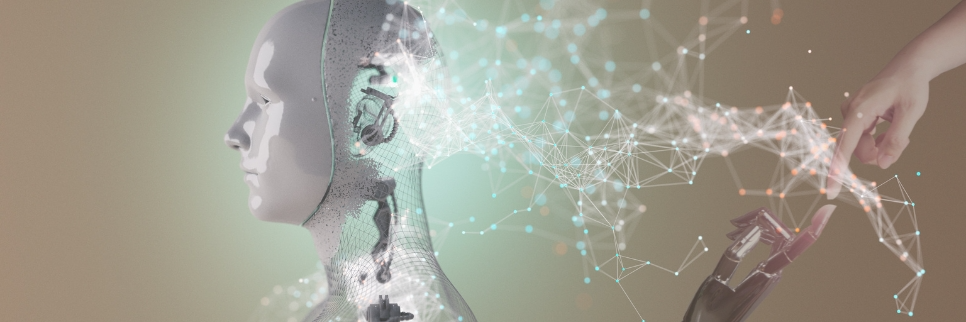EctoLife: Exploring the Concept of an Artificial Womb Facility.

- April 22, 2024
- 2895
Have you ever thought of a baby being "produced" in a setting akin to a factory? Many are discussing the future of pregnancy after seeing a video depicting rows of infants being developed inside a pod that resembles a scene from Keanu Reeves' Matrix.
For now, EctoLife—dubbed the "world's first artificial womb facility"—is merely a notion that enables parents to create customized offspring.
Hashem Al-Ghaili, a producer, filmmaker, science communicator, and "molecular biologist by trade" who lives in Berlin, is the creator of the idea, according to his website.
The "artificial womb facility"—what is it? What qualities does it have, and why is EctoLife necessary? Let's examine this.
EctoLife
According to Al-Ghaili, the idea behind EctoLife is derived from more than 50 years of "groundbreaking scientific research" conducted by scientists worldwide.
It will be able to create 30,000 offspring annually in transparent "growth pods" in a lab.
According to the UK's Metro newspaper, the facility—which would run entirely on renewable energy—plans to accommodate 75 labs, each of which would be furnished with up to 400 development pods, or artificial wombs.
The environment that these pods are intended to provide is identical to that of a mother's womb.
According to Metro, a screen on the pods displays real-time data so parents can monitor their child's growth and development.
An app on the phone can also be used to monitor this data.
According to Mirror.co.uk, Al-Ghaili was cited as claiming that the artificial intelligence-based system also keeps an eye on your baby's physical characteristics and reports any probable genetic problems.
With a simple "push of a button," the baby can be taken out of the pod during delivery.
"EctoLife offers you a stress-free, painless substitute to help you give birth to your child. The distribution procedure is easy to use, quick, and only requires the push of a button, according to a statement Metro cited.
It went on to say, "You will be able to easily remove your baby from the growth pod after discharging the amniotic fluid from the artificial womb."
Artificial Wombs
If ethical constraints are lifted, Al-Ghaili thinks that artificial womb facilities might materialize in ten years or less, according to Mirror.co.uk.
He declared, "Every feature in the concept is entirely science-based and has already been accomplished by scientists and engineers."
Mirror.co.uk cited the director as saying, "The only thing left is building a prototype by combining all the features into a single device."
In the near future, he believes, people may be eager to accept the technology once ethical restraints are loosened.
"It actually relies on moral standards. Research on human embryos is currently prohibited for periods longer than 14 days. Because of ethical issues, embryos have to be destroyed after 14 days, the producer stated.
According to Metro, he said, "I give it 10 to 15 years before EctoLife becomes widely used everywhere if these ethical restrictions are relaxed."
"Incorporate an additional five years of public education and awareness campaigns to encourage people to be more accepting of technology," Al-Ghaili stated.
"Premium Bundle"
According to Mirror.co.uk, "genetically engineering the embryo before implanting it into the artificial womb" would be possible with an "Elite Package."
It is up to the parents to decide on their child's height, skin tone, eye color, hair color, and physical strength.
As reported by Metro, a statement claimed that "you can edit any trait of your baby through a wide range of over 300 genes thanks to the CRISPR-Cas 9 gene editing tool."
Parents will be able to "fix any inherited genetic diseases" with the help of the "Elite Package."
Need for an Artificial Womb
According to Interesting Engineering (IE), parents now have the opportunity to have children through EctoLife without even having to go through the process of pregnancy or conception.
Al-Ghaili asserts that the artificial womb facility can "assist" nations like South Korea, Japan, and Bulgaria that are struggling with population decline.
It also seeks to help infertile couples have biological children of their own.
The director thinks that the technology can help women who have had their uteruses removed because of cancer or other reasons.
What Professionals Say
According to experts, the technology is not all that unrealistic and may eventually be implemented.
According to King's College London obstetrics professor Andrew Shennan, HuffPost, "it's possible from a theoretical standpoint." All that needs to be done is provide the right atmosphere, which includes fuel and oxygen, and I believe the technology exists to make that possible."
"There are numerous instances where babies are born very early and receive excellent care in incubators—a very innocent version of what you're discussing—and are fed through tubes all the way to their stomachs," he said.
Shennan added that the formation of a baby's organs throughout the early stages of development would be more difficult than maintaining an artificial womb.
According to HuffPost UK, he stated that there are "all sorts of biochemical and immunological things that go on that we probably don't understand yet" when it comes to antibodies that are passed from the mother to the fetus and that further research is necessary.
Head of the UCL Institute for Women's Health's Reproductive Science and Society Group, Professor Joyce Harper, told HuffPost UK, "There's no denying that IVF will eventually produce the majority of the population. and that there would be a chance for this [EctoLife]. I believe that in science, it is best to never say never.








